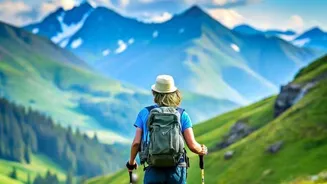Unlock the world of backpacking with our ultimate guide! Tips for safe, budget-friendly adventures await. Read on for more!
Backpacking! Just the word conjures up images of freedom, breathtaking landscapes,
and unforgettable experiences. For many Indians, especially the youth, backpacking is becoming an increasingly popular way to travel and explore the world, or even just our own incredible country.
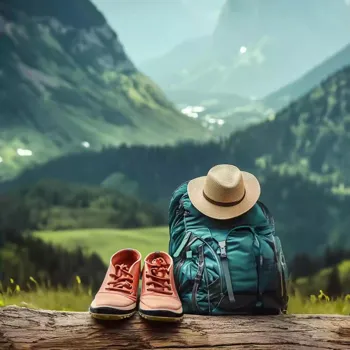
It’s about ditching the fancy hotels and rigid itineraries, embracing spontaneity, and connecting with the local culture on a deeper level.
But before you grab your rucksack and head out the door, a bit of planning and know-how can make your backpacking journey smoother, safer, and even more rewarding. That's where this guide comes in, packed with tips and tricks for the aspiring backpacker.
Choosing the right destination is key in backpacking
The excitement of backpacking can be overwhelming, but before you start dreaming of foreign lands, the first step is deciding where exactly you are planning to head. Choosing your destination is a huge decision. Consider what kind of experience you are looking for.
Are you drawn to the Himalayas, the beaches of Goa, or the historical cities of Rajasthan? Maybe you are eyeing countries like Thailand, Nepal, or Vietnam, which are popular choices for first-time international backpackers due to their affordability and vibrant cultures.
Once you have a destination in mind, research is key. Look into the local climate, visa requirements (if travelling abroad), currency exchange rates, and any potential safety concerns. Check travel advisories issued by the government for your chosen destination.
A little bit of homework can save you from a lot of trouble down the line.
Backpacking in India: Tips for Budget Travel
Next comes the budgeting part which every Indian is well versed in, so it should come as no surprise that money matters but backpacking doesn't have to break your bank. In fact, it's often a more budget-friendly way to travel compared to traditional tourism.
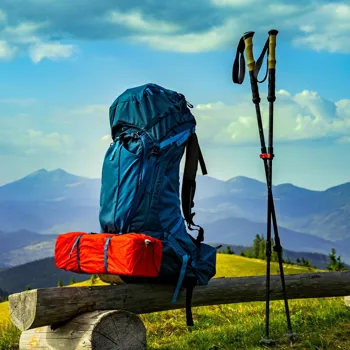
As you research your destination, get an idea of the average cost of accommodation (hostels are your best friend!), food, transportation, and activities. Create a daily or weekly budget and try to stick to it.
There are many useful apps available that can help you track your expenses while you're on the road.
Look for ways to save money, such as opting for local buses and trains instead of expensive taxis, eating at local eateries (dhabas) rather than fancy restaurants, and taking advantage of free activities like hiking or exploring parks.
Travel insurance essential for a safe journey
Finally, don't forget travel insurance. It's essential to protect yourself against unexpected events like medical emergencies, flight cancellations, lost luggage, or theft. Choose a policy that covers your destination and the activities you plan to participate in.
Make sure you understand the terms and conditions of the policy before you purchase it. Keep a copy of your insurance details with you and share it with a family member or friend back home. With these things considered and followed; you are safe to start your journey.
Pack light and smart for backpacking trips
Packing for a backpacking trip is an art form. The key is to pack light and only bring what you absolutely need. Remember, you'll be carrying everything on your back, so every gram counts. Invest in a good quality backpack that is comfortable to carry and fits your torso properly.
A 40-60 liter backpack is usually sufficient for most trips. Make a list of essential items and stick to it. If you are bringing clothes try choosing lightweight, quick-drying fabrics that can be easily washed and worn multiple times.
Pack versatile clothing items that can be mixed and matched to create different outfits. Consider a travel towel, which is lightweight and dries quickly. Packing cubes can also be helpful for organizing your belongings and compressing your clothes.
Pack travel-sized toiletries, essentials, electronics wisely for efficient travel
When it comes to toiletries, take travel-sized versions of your favorite products to save space and weight. You can also buy larger bottles of toiletries at your destination if needed. Don't forget to pack essential medications, a first-aid kit, sunscreen, insect repellent, and hand sanitizer.
Electronics can be a source of temptation, but try to limit yourself to the essentials. A smartphone, a portable charger, and a universal adapter are usually sufficient. Consider bringing a Kindle or e-reader instead of bulky books. Before you pack, try laying out all the items you plan to bring.
Then, take a critical look and ask yourself if you really need each and every item. If not, leave it behind.
Keep bag weight 15-20% of body weight, use tips to pack light, organize essentials
The weight of bag should generally be no more than 15% to 20% percent of your body weight, failing which it can bring a lot of complications on the trip! Try to make sure your bag is as light as possible as you will be moving around with it quite often.
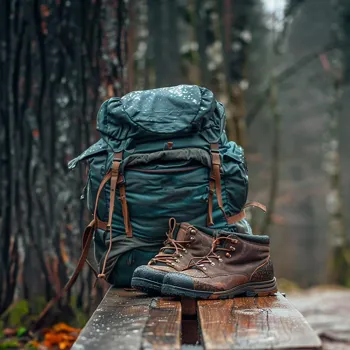
Roll your clothes instead of folding them, this can often save space and also prevent wrinkles! Keep your important documents such as passport, visa, flight tickets, and insurance details in a secure and easily accessible pouch.
With this you should have been able to reduce the weight of your luggage and will enjoy the journey.
Prioritize safety when backpacking: inform contacts, learn local phrases, stay cautious
Your safety and well-being should always be a top priority when backpacking. Before you leave, inform your family and friends about your itinerary and share your contact information. Stay in touch with them regularly and let them know your whereabouts.
Learn a few basic phrases in the local language. This can be helpful for communicating with locals and asking for assistance. Be aware of your surroundings and avoid walking alone in poorly lit areas or at night.
Keep your valuables out of sight and be cautious of pickpockets, especially in crowded tourist areas. Make copies of your important documents and store them separately from the originals. Leave a copy with a trusted friend or family member back home.
Be cautious about food and water consumption during travel, prioritize hygiene and safety measures
When it comes to food and water, be careful about what you consume, especially in countries with questionable hygiene standards. Drink bottled or purified water and avoid ice in your drinks. Eat at reputable restaurants and avoid street food stalls that look unclean.
Wash your hands frequently with soap and water, or use hand sanitizer. Pack a basic first-aid kit with essentials like pain relievers, band-aids, antiseptic wipes, and anti-diarrheal medication.
If you have any pre-existing medical conditions, consult your doctor before you travel and pack any necessary medications. Get vaccinated against any diseases that are prevalent in your destination.
Trust instincts, stay safe, avoid risks, respect local laws, limit alcohol on backpacking trips
Always trust your instincts. If a situation feels unsafe or uncomfortable, remove yourself from it immediately. Be wary of accepting drinks or food from strangers. Avoid discussing your travel plans or personal information with people you don't know well.
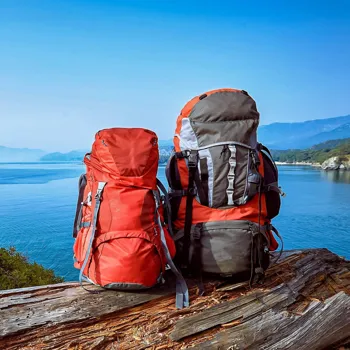
Learn about the local laws and customs and respect them. Avoid engaging in illegal activities or behavior that could get you into trouble. Be mindful of your alcohol consumption and avoid getting excessively drunk, especially when you're alone.
By following these simple precautions, you can minimize your risk of encountering problems and enjoy a safe and healthy backpacking trip.
Embrace local cultures when backpacking; respect customs and traditions
One of the most rewarding aspects of backpacking is the opportunity to immerse yourself in different cultures. Be open to new experiences and embrace the local way of life. Learn about the local customs, traditions, and social etiquette.
Dress modestly when visiting religious sites and be respectful of local customs. Try to learn a few basic phrases in the local language. This will show locals that you are interested in their culture and make it easier to communicate with them. Be respectful of local traditions and customs.
Avoid engaging in behavior that could be considered offensive or disrespectful.
Engage with locals, embrace culture, support businesses, protect environment
Engage with the local community. Talk to locals, ask them questions about their lives, and learn about their culture.
Participate in local activities, such as cooking classes, cultural festivals, or volunteer projects These can often make them open up to you and even take you to places most tourists are not aware about! Support local businesses by buying souvenirs and eating meals at local restaurants.
Be mindful of your impact on the environment and try to minimize your carbon footprint. Dispose of your trash properly, avoid using single-use plastics, and conserve water and energy.
Be a responsible traveler, respect locals, make friends, enjoy!
Be a responsible traveler and leave a positive impact on the communities you visit. Remember that you are a guest in their country and should treat them with respect and kindness. One of the joys of travelling is to meet new people from different regions and understand each other.
Be open to this idea and you may end up making friends for life! With these things in mind, you should find yourself enjoying the place as well as the people far more and that will ultimately leave a more positive impact on your journey as well as them.
Backpacking tips for budget travel: focus on affordable transportation and accommodation options
Backpacking is often associated with budget travel, and that extends to transportation and accommodation. When it comes to transportation, look for affordable options such as local buses, trains, and shared taxis. These are often much cheaper than private taxis or rental cars.
Consider buying a travel pass or a multi-day ticket if you plan to use public transport frequently. Walk or cycle whenever possible. This is a great way to explore a city and get some exercise at the same time.
If you're travelling long distances, consider overnight buses or trains to save on accommodation costs.
Hostels ideal for budget travelers; consider homestays, camping too
When it comes to accommodation, hostels are a backpacker's best friend. They offer dorm-style rooms at affordable prices, and they're a great place to meet other travelers. Look for hostels that offer free breakfast, Wi-Fi, and other amenities. Consider using websites like Hostelworld or Booking.
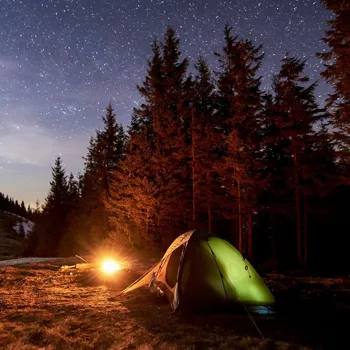
com to find and book hostels in advance. If you are travelling in a group or in a big family, look in to affordable homestays or family accommodation. These can be a good option if you're looking for a more authentic experience and a chance to connect with locals.
Consider camping if you're travelling in a country with beautiful natural scenery. Camping can be a very affordable way to stay in touch with nature, but make sure you do your research and choose a safe and legal campsite.
Stay flexible in travel plans for unexpected opportunities
Be flexible with your travel plans and be prepared to change your route or accommodation if necessary. Sometimes the best experiences happen when you least expect them. Embrace the unexpected and be open to new opportunities. With these things considered your travel and stay will be quite sorted.
All the luck to you kind and safe traveller!
Document your backpacking journey through photos, writing, and blogging
Finally, don't forget to document your backpacking journey. Whether you're a keen photographer, a budding writer, or simply want to keep a record of your experiences, there are many ways to capture your memories. Take lots of photos and videos.
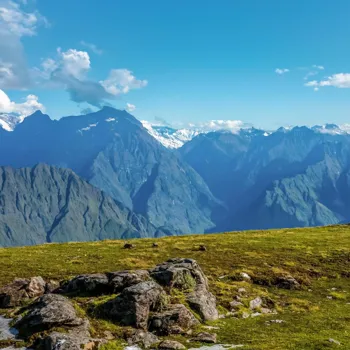
These will help you remember the places you visited, the people you met, and the experiences you had. Consider starting a travel blog or journal. This is a great way to share your experiences with others and reflect on your journey.
Write about the places you visited, the challenges you faced, and the lessons you learned.
Collect souvenirs, share on social media, connect with travelers
Collect souvenirs from your travels. These can be anything from postcards and magnets to local handicrafts and artwork. Just be mindful of any import restrictions at your destination! Share your experiences on social media.
Use platforms like Instagram, Facebook, or Twitter to share your photos and stories with your friends and family. But consider privacy settings and be mindful of sharing your location with strangers. Connect with other travellers online.
Join backpacking forums or Facebook groups to share tips, ask questions, and connect with other people who are passionate about travel.
Reflect on backpacking journey, document memories, share experiences
After your trip, take the time to reflect on your experiences. What did you learn about yourself? What did you learn about the world? How has your backpacking journey changed you? The memories and experiences you gain while backpacking will last a lifetime.
By documenting your journey, you can relive those memories and share them with others for years to come. Travel safe and don't forget to have fun. The road awaits!
AI Generated Content. Glance/InMobi shall have no liability for the content